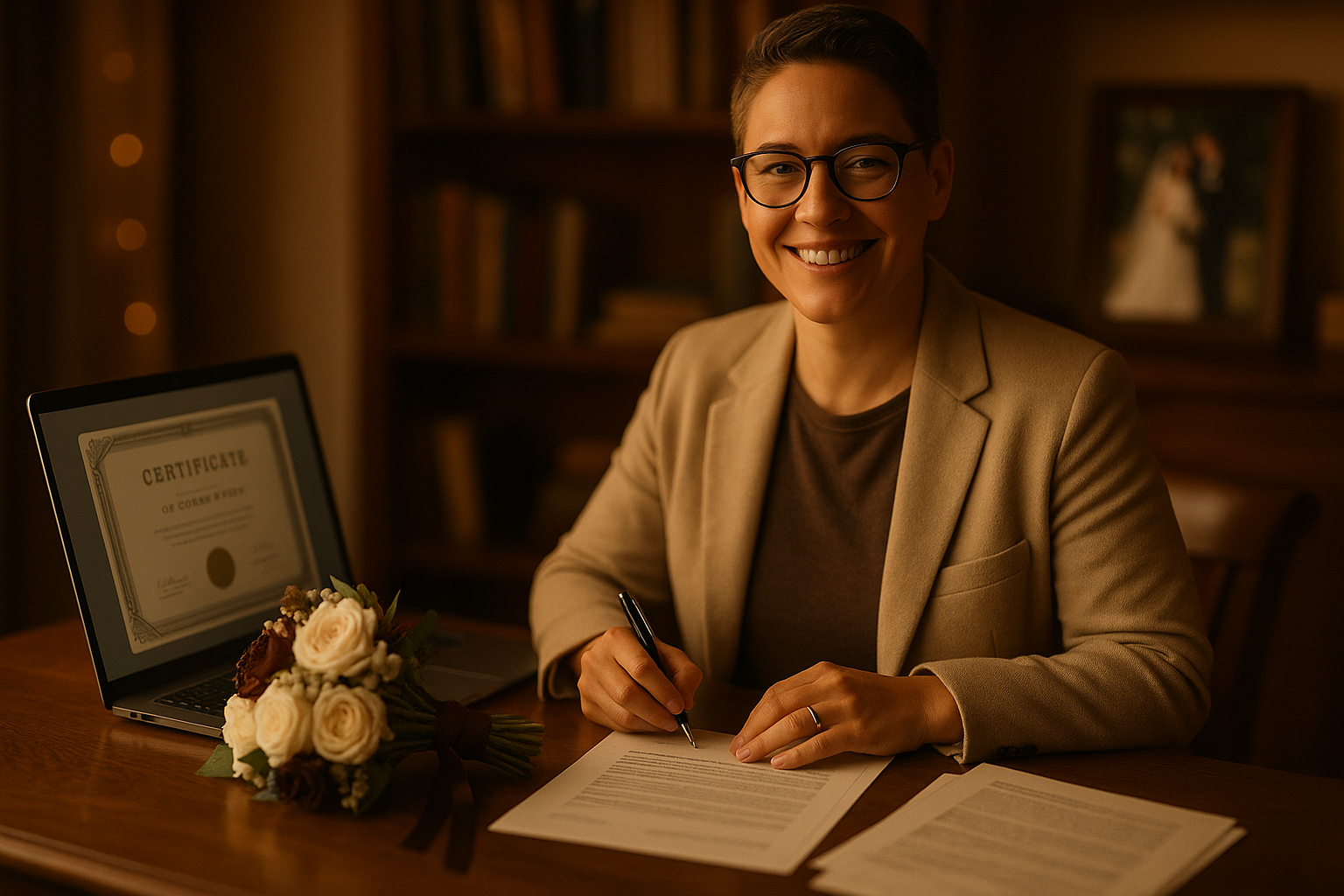Thinking about becoming a licensed virtual wedding officiant in today’s digital era? With the rise of online weddings and the convenience of virtual ceremonies, more people than ever are stepping up to help couples get married online. If you’re curious about what it takes to legally officiate a Zoom wedding or act as an online minister, you’re in the right place! Let’s walk through the steps and insider secrets so you can make happily ever after happen—no matter where you (or your couple) lives.
Why Become a Virtual Wedding Officiant?
Becoming a licensed virtual wedding officiant opens up endless possibilities. Whether you want to help friends tie the knot from afar, join the growing gig economy, or just love celebrating love, officiating an online wedding ceremony is rewarding and more in-demand than ever. Plus, virtual ceremonies are here to stay!
How to Get Licensed for Online Marriages
The requirements may vary by state or country, but in most places, it’s easier than you think. Many successful virtual officiants start by getting ordained through a recognized online ministry. Research the legalities for your area (check your county clerk or USCIS for immigration needs), and remember, some locations require a special virtual or remote officiant license.
Preparing for Your First Virtual Wedding
Once you’re licensed, it’s time to get tech-ready! Test your equipment, gather your virtual backdrop, and work with your couple to design a ceremony that feels personal—even from a distance. A true pro knows how to set the tone, guide the couple through their vows, and ensure everything runs smoothly over Zoom or other video platforms.
Understanding the Legal Side of Online Marriage
One major benefit of virtual ceremonies is being able to serve couples regardless of their location. But, don’t forget: every jurisdiction has unique rules on registering an online marriage certificate or obtaining an online marriage license. For international couples or anyone navigating immigration, find resources like our immigration support for guidance after the wedding.
Making Virtual Weddings Memorable and Meaningful
Virtual doesn’t have to mean impersonal. As an online minister, your energy, empathy, and attention to detail can make an online wedding as intimate as an in-person one. Read real stories on our testimonials page for inspiration!
Next-Level Tips for Virtual Wedding Officiants
- Offer help with document translations—see our certified translations service.
- Simplify the apostille process by recommending the apostille service to couples marrying internationally.
- Check out our blog for the latest in virtual marriage trends and best practices!
FAQs: Becoming a Virtual Wedding Officiant
- Do I need to be ordained to officiate an online marriage?
In most states, yes! However, you can often become ordained online through a reputable ministry. - Can my online marriage ceremony be recognized internationally?
It depends on the country—make sure to look into legal requirements and consider apostille services for documentation. - What technology should I use for a virtual wedding?
Zoom is the standard, but any reliable video conferencing tool works. Double-check your internet, sound, and video quality before the big day! - How is an online marriage license issued?
Many states now offer digital applications. See how the process works in detail on our How It Works page. - Can I help friends get married online if we’re in different states?
Absolutely! Virtual wedding officiants can often serve couples across state and even national borders, but check each location’s laws for compliance.
Ready to begin your journey as a virtual wedding officiant, or have more questions about hosting a beautiful virtual wedding? Reach out to our friendly team at Virtual Same Day Marriage today. We’re here to help every step of the way!




